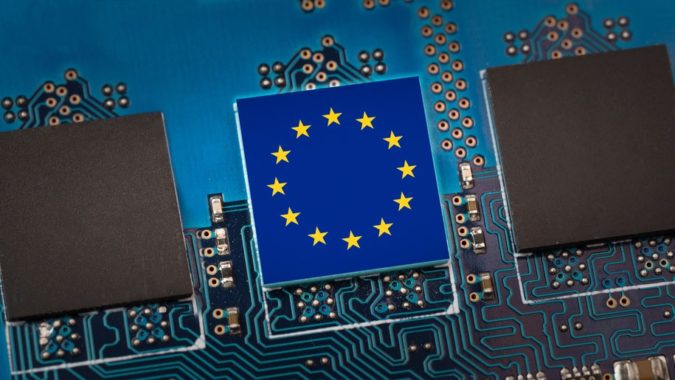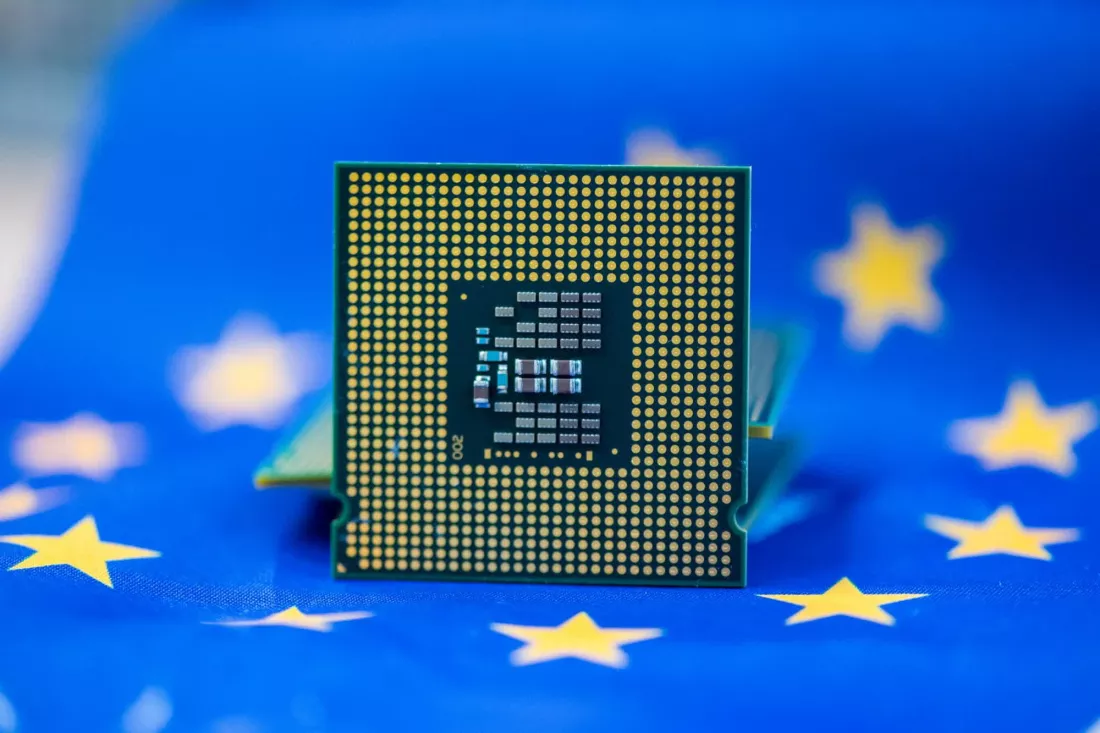The European Union has approved a significant plan to strengthen its semiconductor industry. The initiative, known as the European Chips Act, is designed to help the EU compete with the U.S. and Asia in technology and ensure control over a crucial component of global electronics.
The EU Parliament and the 27 member states finalized the legislation on Tuesday. The new regulations aim to double the EU’s global semiconductor market share from 10% to 20% by 2030.
Ebba Busch, the Swedish energy minister, highlighted the importance of this agreement for the green and digital transition and for maintaining the EU’s resilience during challenging times. She described the new rules as a “real revolution” for Europe’s semiconductor sector.
The European Chips Act is a substantial 43 billion-euro ($47 billion) initiative involving both public and private investments. The goal is to secure supply chains, prevent future semiconductor shortages, and encourage investment in the industry.
The Chips Act has three main objectives:
1. Building large-scale capacity and fostering innovation.
2. Ensuring the EU’s self-sufficiency in semiconductors.
3. Preparing the EU for potential future supply crises.
The act will allocate 6.2 billion euros to advance the industrialization of innovative technologies, establish centers for skill development, and provide financial access, according to a statement from the European Commission.
It will also encourage investment in manufacturing facilities, support integrated production facilities, and open EU foundries to secure supply.
Member states will collaborate to monitor supply and forecast shortages, the commission noted. Since the plan’s announcement last year, the EU has already secured between 90 billion and 100 billion euros in public and private commitments for industrial deployment.
Semiconductors are essential components in electronic devices, from smartphones and gaming consoles to unexpected items like cars and refrigerators.

The global supply chain for these components, heavily concentrated in East Asia, has become a critical issue for governments worldwide due to recent shortages that affected major automakers and electronics manufacturers.
The COVID-19 pandemic exposed the risks of overreliance on manufacturers in Taiwan and China for semiconductor components. The growing tensions between China and Taiwan have further complicated this dependency.
TSMC, the Taiwanese semiconductor giant, is a leading producer of microchips, and its capabilities are highly coveted by many Western nations, which are now taking steps to boost domestic chip production.
The EU is pursuing greater control over its supply chain to reduce reliance on foreign entities. This effort aligns with the EU’s goal of achieving “digital sovereignty,” which means gaining more control over crucial technologies.
Busch emphasized the transformative potential of the Chips Act: “A swift implementation of today’s agreement will convert our dependency into market leadership, our vulnerability into sovereignty, and our expenditure into investment.”
She believes the act positions Europe at the forefront of cutting-edge technologies vital for green and digital transitions.
The EU acknowledges that it cannot achieve this production increase independently, as there are no European firms capable of manufacturing leading-edge chips.
To address this, the EU aims to attract investment from international companies. U.S. chipmaking giant Intel, for instance, has committed over 33 billion euros to enhance chip production across Europe.
In contrast, U.K. chip companies have threatened to leave the country due to a lack of similar support from the government.
While Europe boasts a major player in the semiconductor industry—Dutch firm ASML, known for its extreme ultraviolet lithography machines—ASML does not produce its own chips.
Officials are keen to see more semiconductor development within Europe to mitigate the risk of major shortages and ensure national security.







Leave a Reply